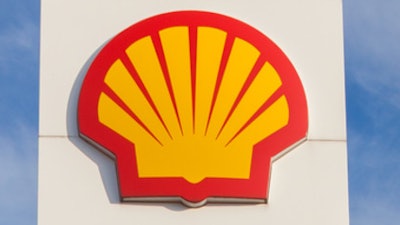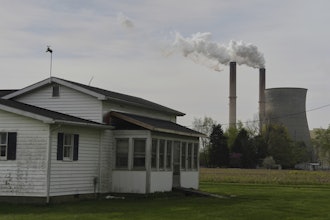
BERLIN (AP) — The German government said Wednesday it has called an international meeting over Shell's refusal to dismantle old oil rigs containing thousands of tons of crude in the Northeast Atlantic.
A spokesman for Germany's environment ministry told reporters in Berlin that the OSPAR Commission, which oversees a treaty on protecting the Northeast Atlantic, will hold an unprecedented special session in London to discuss the issue Friday.
Stephan Gabriel Haufe said the four Shell platforms in question — known as Brent Alpha, Bravo, Charlie and Delta — contain about 11,000 metric tons (12,125 tons) of crude oil residue.
"Germany considers it absolutely unacceptable that this amount of crude oil should remain in these structures," Haufe said.
He said Germany was concerned about a repeat of the Brent Spar incident in 1995, when Shell's plans to dispose of a floating oil storage unit at sea sparked strong environmental protests and even violence.
Shell rejected the German government's concerns, saying it had commissioned independent scientists to examine the decommissioning of the platforms in the Brent oil field and the company had held extensive consultations with experts and non-governmental organizations.
"We are confident that our plans are safe, environmentally sound, technically achievable, and socially responsible," Shell said in a statement.
The meeting in London will be attended by European countries adjacent to the Northeast Atlantic and industry representatives. Germany says it has received the support of Belgium, the Netherlands, Sweden, Luxembourg and the European Union on the issue.
The dispute comes as Britain, where Shell has a major corporate presence, is in the process of withdrawing from the EU.
Britain said earlier this year that it plans to grant Shell an exemption from the usual requirements to fully remove oil platforms when they are decomissioned. Three of the rigs in question, built in the 1970s, are massive concrete structures as heavy as skyscrapers, making them significantly harder to dispose of than modern floating facilities. The fourth is made of steel.
Shell said decommissioning the platforms, located 116 miles offshore north-east of Scotland, would be a "complex, major engineering project" because of their size, age, design and the harsh environment of the North Sea.
The company said research it commissioned suggests the lower parts of the platforms — known as legs — can be left at sea where they would slowly degrade over hundreds of years without any measurable impact on the environment.
Shell said removing the sticky mix of water, sand, grit and oil from inside the platforms' legs would be "technically difficult and present significant safety risks to people working on them, on balance with only a minor benefit in terms of reducing the legacy environmental impact." It denied cost concerns were the deciding factor.
But the German government cited a separate study, posted on its website, that raised concerns about Shell's plans.
The dispute over the four platforms could have implications for a further 80 such structures, including 17 with large amounts of crude oil inside them, that oil companies currently plan to leave in the North Sea.






















